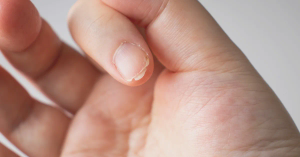There's nothing more panicking than the moment when you check your calendar, do a double-take, and realize your period is late. Beyond the panic, the relentless Googling, and the mental replay of the past few weeks about—what did I eat?
The truth is—a missed or late period isn’t always a sign of pregnancy. In fact, according to studies, nearly 30 percent of women experience irregular cycles at some point in their lives. Hormones, stress, and lifestyle changes—there’s a long list of things that can interrupt your menstrual cycle. Read below this article to explore seven possible reasons behind missed or late periods.
Stress
It is an undeniable fact that stress is bad. But did you know it can literally put your period on pause? When your body is in fight-or-flight mode, it produces more cortisol, a stress hormone that can interfere with ovulation. This means no ovulation, no period.
According to research, women with high stress levels were at a higher chance to experience delayed or missed periods. You can try yoga, meditation, or a good cry session because sometimes, stress is real.
Hormonal Imbalance
Conditions such as Polycystic Ovary Syndrome (PCOS) or thyroid disorders can also hamper the regular working of your hormones, thereby leading to irregular or missed periods.
PCOS, which affects about 10 percent of women of reproductive age, can cause high levels of androgens (male hormones) that prevent ovulation. Similarly, hypothyroidism (an underactive thyroid) can also lead to longer cycles or skipped periods. If you notice irregular cycles often, it's time to check with your gynecologist.
Excessive Exercise
Women who regularly engage in marathon training, HIIT sessions, or professional-level weightlifting—their body might be prioritizing energy for survival rather than reproduction. Intense physical activity can lower estrogen levels, leading to a condition called hypothalamic amenorrhea, where your period temporarily stops.
Surprisingly, up to 50 percent of female athletes experience menstrual irregularities. While it doesn't mean you have to completely quit all the physical activities, if your body is showing signs of overtraining—fatigue, mood swings, or a missing period—it is best to balance your workouts with rest and proper nutrition.
Weight Fluctuations
The fact is—your body needs a certain amount of body fat to regulate hormones. Sudden weight loss, eating disorders, or very low body fat can interfere with ovulation, thus leading to missed periods. On the other hand, rapid weight gain can disrupt insulin levels, thus interfering with reproductive hormones.
So, if you’ve recently noticed a significant change in weight, your cycle might take some time to adjust. Eating a balanced diet with enough healthy fats and proteins can significantly help regulate hormones and get your menstrual cycle back on track.
Birth Control
Yes, you heard this right. If you’ve recently started or stopped hormonal birth control, your cycle might be slightly unpredictable. Birth control pills regulate periods by controlling hormone levels. And when you go off them, your body needs time to adjust to its natural cycle.
Some women might also experience post-pill amenorrhea, where periods take a few months to return. In some cases, it can take up to six months for the cycle to regulate. However, if it’s been longer than that, or you have other symptoms such as acne or excessive hair growth, consider visiting your doctor.
Takeaway
In conclusion, a missed or late period is surprisingly common, and in most cases, it's not anything severe. From hormonal imbalances to birth control, there are multiple reasons why your periods could be late or missed. However, if you notice irregular cycles consistently, it is best to reach out to your gynecologist.








